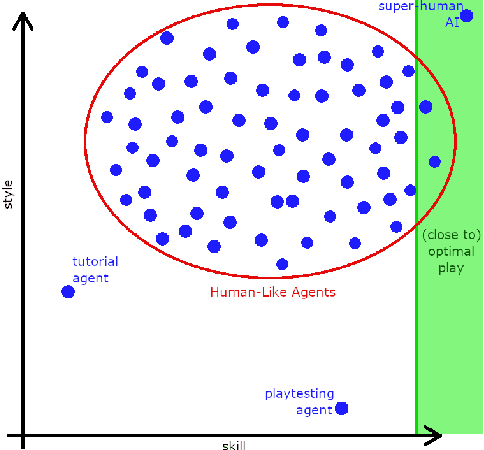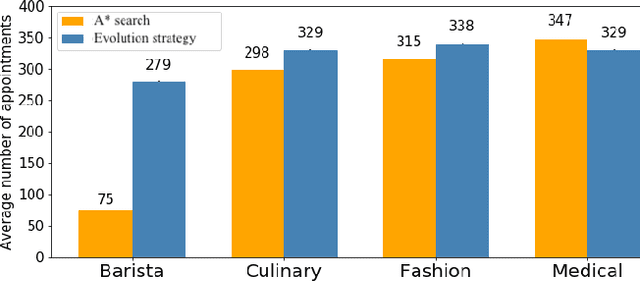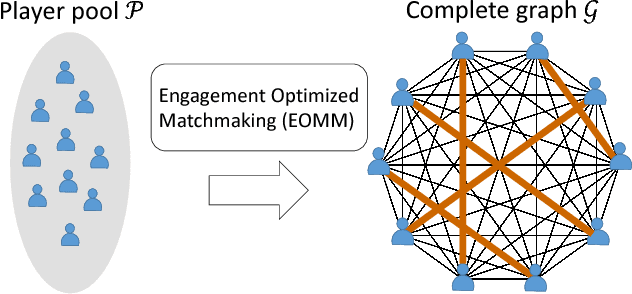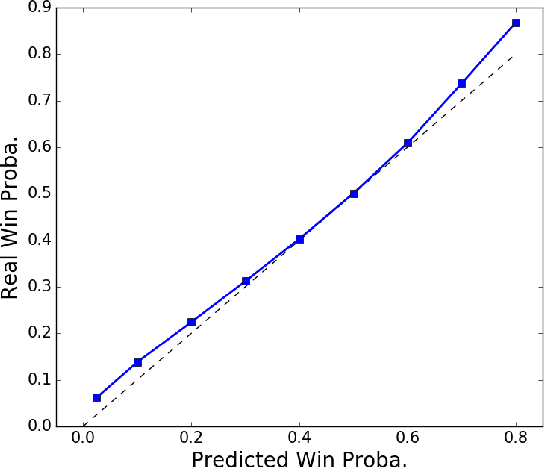Navid Aghdaie
Competitive Balance in Team Sports Games
Jun 24, 2020



Abstract:Competition is a primary driver of player satisfaction and engagement in multiplayer online games. Traditional matchmaking systems aim at creating matches involving teams of similar aggregated individual skill levels, such as Elo score or TrueSkill. However, team dynamics cannot be solely captured using such linear predictors. Recently, it has been shown that nonlinear predictors that target to learn probability of winning as a function of player and team features significantly outperforms these linear skill-based methods. In this paper, we show that using final score difference provides yet a better prediction metric for competitive balance. We also show that a linear model trained on a carefully selected set of team and individual features achieves almost the performance of the more powerful neural network model while offering two orders of magnitude inference speed improvement. This shows significant promise for implementation in online matchmaking systems.
Winning Isn't Everything: Training Human-Like Agents for Playtesting and Game AI
Mar 25, 2019



Abstract:Recently, there have been several high-profile achievements of agents learning to play games against humans and beat them. We consider an alternative approach that instead addresses game design for a better player experience by training human-like game agents. Specifically, we study the problem of training game agents in service of the development processes of the game developers that design, build, and operate modern games. We highlight some of the ways in which we think intelligent agents can assist game developers to understand their games, and even to build them. Our early results using the proposed agent framework mark a few steps toward addressing the unique challenges that game developers face.
Exploring Gameplay With AI Agents
Nov 16, 2018



Abstract:The process of playtesting a game is subjective, expensive and incomplete. In this paper, we present a playtesting approach that explores the game space with automated agents and collects data to answer questions posed by the designers. Rather than have agents interacting with an actual game client, this approach recreates the bare bone mechanics of the game as a separate system. Our agent is able to play in minutes what would take testers days of organic gameplay. The analysis of thousands of game simulations exposed imbalances in game actions, identified inconsequential rewards and evaluated the effectiveness of optional strategic choices. Our test case game, The Sims Mobile, was recently released and the findings shown here influenced design changes that resulted in improved player experience.
EOMM: An Engagement Optimized Matchmaking Framework
Feb 22, 2017



Abstract:Matchmaking connects multiple players to participate in online player-versus-player games. Current matchmaking systems depend on a single core strategy: create fair games at all times. These systems pair similarly skilled players on the assumption that a fair game is best player experience. We will demonstrate, however, that this intuitive assumption sometimes fails and that matchmaking based on fairness is not optimal for engagement. In this paper, we propose an Engagement Optimized Matchmaking (EOMM) framework that maximizes overall player engagement. We prove that equal-skill based matchmaking is a special case of EOMM on a highly simplified assumption that rarely holds in reality. Our simulation on real data from a popular game made by Electronic Arts, Inc. (EA) supports our theoretical results, showing significant improvement in enhancing player engagement compared to existing matchmaking methods.
 Add to Chrome
Add to Chrome Add to Firefox
Add to Firefox Add to Edge
Add to Edge